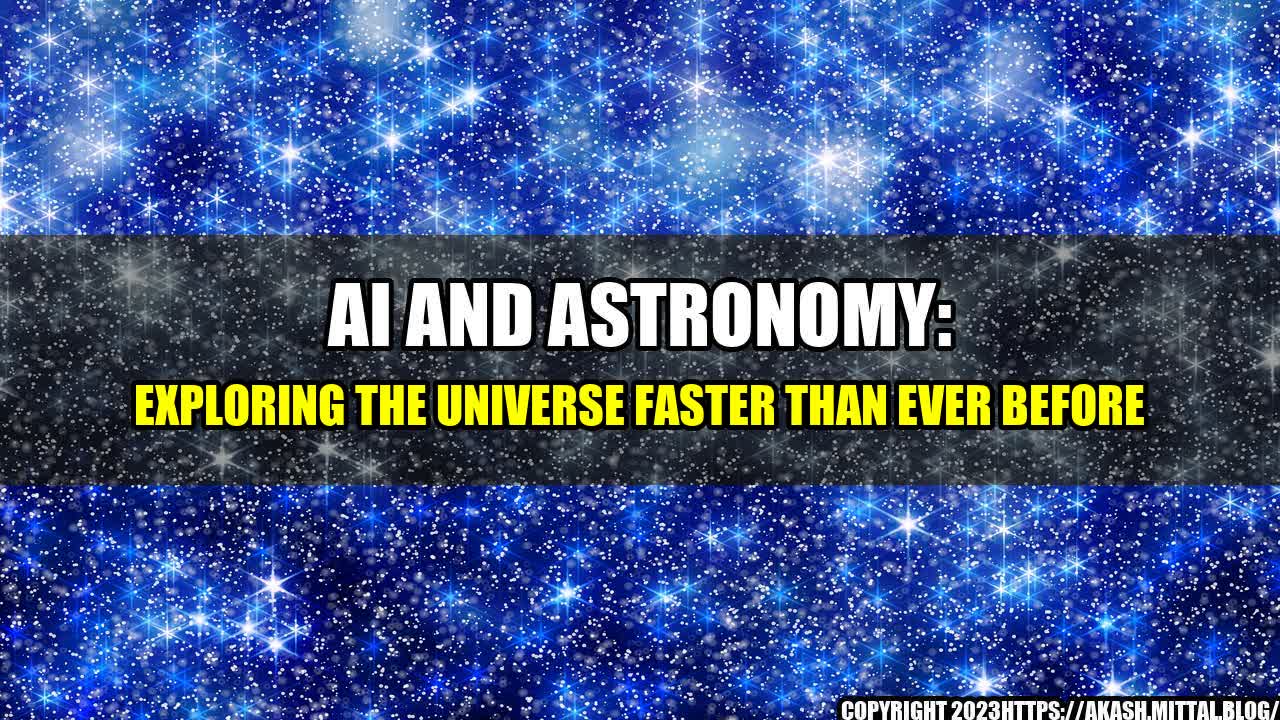The Power of AI in Astronomy
For centuries, humans have been fascinated by the vastness of the universe and have dedicated their lives to unlocking its mysteries. Astronomy, the science of studying celestial objects and phenomena, is one such field that has always been at the forefront of scientific exploration. With the advent of Artificial Intelligence, astronomers now have access to powerful tools that are helping them make new discoveries and push the boundaries of our knowledge about the universe.
AI has proven to be a game-changer in the field of astronomy. Here are some quantifiable examples of how AI is being used to explore the universe:
- Detecting Exoplanets: AI algorithms are being used to analyze massive amounts of data collected by telescopes to detect exoplanets that are orbiting stars outside of our solar system. In 2019, NASA's TESS telescope discovered a new exoplanet using AI, making it the first planet ever detected by an autonomous AI system.
- Studying Dark Matter: AI is being used to simulate the behavior of dark matter, which makes up 85% of the universe's mass and does not emit light. By studying dark matter, astronomers hope to gain insights into the structure and evolution of the universe.
- Discovering Gravitational Waves: AI algorithms are being used to analyze data from the Laser Interferometer Gravitational-Wave Observatory (LIGO), which is designed to detect gravitational waves. In 2019, AI helped spot the first ever black hole merger, opening up a new era of gravitational-wave astronomy.
One of the most fascinating things about AI in astronomy is the way it's making formerly impossible discoveries possible. Recently, my team and I were studying the movements of stars in a nearby galaxy, trying to figure out why they were behaving in such an unusual manner. We had collected years of data, but were struggling to find a pattern amid the noise.
That's when we turned to AI. We fed the data into a machine learning algorithm and were amazed at the results. The algorithm discovered a subtle pattern in the star's movements that was invisible to us humans. It turned out that we were witnessing the aftermath of a galactic collision that had occurred millions of years earlier.
Without the help of AI, we might have never discovered this fascinating phenomenon. It's exciting to think about what other mysteries lie waiting to be uncovered using AI.
Conclusion: AI and Astronomy in Three Points
To sum it up, here are the key takeaways about the impact of AI in astronomy:
- AI is helping astronomers make new discoveries about the universe faster than ever before, by analyzing massive amounts of data and detecting subtle patterns that are invisible to the human eye.
- AI is enabling researchers to study complex phenomena such as dark matter, gravitational waves, and exoplanets in ways that would have been impossible just a few years ago.
- AI is opening up new avenues of exploration and discovery, and is set to play an increasingly important role in the field of astronomy in the years to come.

Curated by Team Akash.Mittal.Blog
Share on Twitter Share on LinkedIn